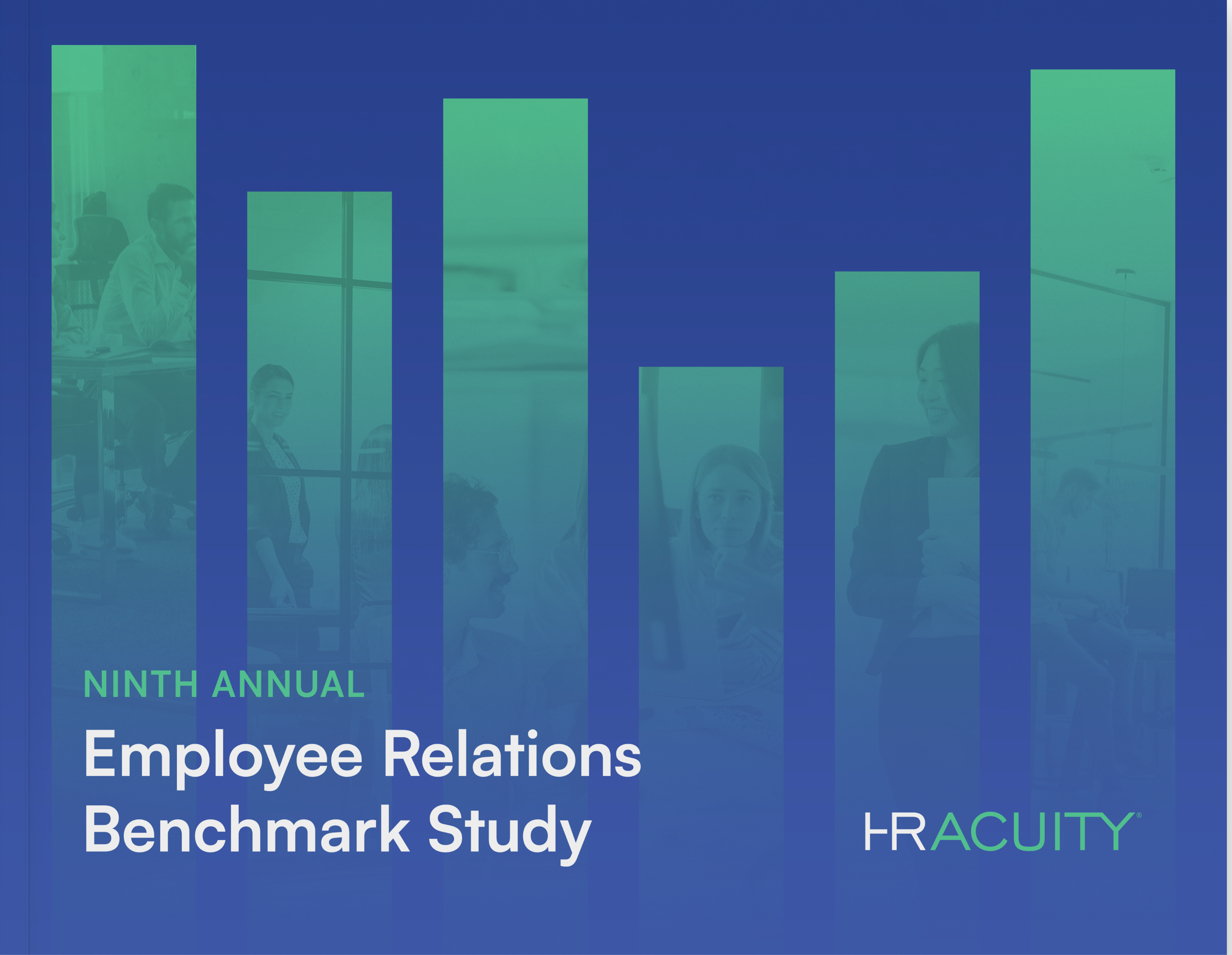Anonymous reporting tools, including ethics hotlines, have become a staple for 90% of organizations, empowering employees to discreetly voice workplace concerns. It’s been shown that 72% of employees feel confident sharing issues when anonymous reporting tools like ethics hotlines are available.
By providing a way for employees to remain anonymous, ethics hotlines remove barriers that often prevent them from coming forward. Anonymous reporting hotlines are integral for employers to gain insight into what’s really happening within their organization and deal with them effectively.

What is an Ethics Hotline?
An ethics hotline, sometimes referred to as a compliance hotline, is a confidential reporting system designed to provide employees with a way to voice concerns or report an ethical violation within an organization. It offers a safe and confidential way for staff to bring up matters concerning corporate integrity, legal responsibilities and regulations and other ethical issues without having to worry about retaliation. Traditionally, these hotlines have been accessible by phone, email or online and are typically managed by an independent third-party organization to ensure impartiality. More recently though integrated messaging platforms have become more popular as a convenient, cost-effective solution.
Issues Reported to an Ethics Hotline
The breadth of issues employees can report on an ethics hotline may include suspicions of:
- Crime such as fraud or theft
- Employee misconduct such as bullying or harassment
- Safety and health violations
- Management wrongdoing
Why Implement an Ethics Hotline?
One really important reason for having an ethics hotline is that for some organizations, it’s legally required. A number of laws and other government regulations require or strongly encourage organizations to establish hotlines as part of their ethics and compliance programs. For example, the Sarbanes-Oxley Act requires public companies establish procedures for employees to report potential violations of securities laws anonymously. Another example is the Federal Acquisition Regulation (FAR). FAR requires organizations, as well as their subcontractors and vendors, that want to do business with the federal government, provide ongoing training and an ethics hotline or another mechanism for anonymous and confidential reporting.
While not all organizations are required to set up hotlines, many voluntarily do so in an effort to nurture a positive workplace culture and protect the organization’s reputation. Anonymous reporting actively supports a transparent workplace and encourages ethical and professional conduct. HR teams that choose to implement an anonymous reporting system will find they benefit from proactively monitoring data and tracking trends that can signal areas of concern or the need for policy changes. Finally, an ethics hotline is a smart legal strategy for ensuring compliance with relevant regulations and maintaining the integrity of the workplace.
How Does an Ethics Hotlines Work?
Ethics hotlines provide secure, anonymous channels for employees to report issues or suspicions without fear. Accessible via phone or online platforms, these hotlines make it easy for employees to share what they’ve observed or experienced. Once a report is submitted, it is directed to a designated team within the organization, often HR or compliance, for thorough investigation and resolution.
The primary goal of ethics hotlines is to create a safe space where employees can confidently raise concerns and directly improve their environment. This approach effectively removes barriers for reporting, such as fear of reprisal, which affects 34% of employees, and discomfort, experienced by 49%. When employees can come forward anonymously, nearly 70% have reported harassment and misconduct, which is 21% higher than the reporting rate when employees lacked an anonymous tool. This is a testament to the power of providing a secure, anonymous reporting mechanism.
After reports are made, tools like HR Acuity help take it a step further by enabling you to engage in conversation with anonymous whistleblowers. This capability is crucial for obtaining additional information that can affect the investigation process. HR Acuity also supports employees by allowing them to check in on the status of their report. This transparency not only builds trust but ensures that employees feel heard and valued throughout the entire process.
Ethics hotlines are more than just a reporting tool—they are a vital component of a transparent, fair and respectful workplace. By providing a secure and anonymous way to report issues, your organization can foster a culture of trust and accountability, ultimately leading to a healthier work environment.
Why are Ethics Hotlines Effective Employee Relations Tools?
You can’t fix problems that you don’t know about. When ethics issues go unreported, they continue to fester and grow. By investing in ethics hotlines, you’re laying the foundation for a robust employee relations strategy that benefits both your organization and your employees.
It’s important to note that just having an anonymous reporting method isn’t enough to ensure employees will actually use it. Organizations need to actively promote these tools and make sure employees know how to use them. More importantly, you must build trust in the process by showing that reports are taken seriously and addressed promptly. It isn’t just about having the right tools; it’s about creating a culture where employees feel safe and confident in coming forward.
Lastly, ethics hotlines can be a game-changer for organizations by uncovering trends and patterns in employee behavior. When HR professionals analyze the data collected through these hotlines, they can identify recurring issues and implement targeted interventions. This proactive approach doesn’t just resolve current concerns; it also helps prevent future incidents. By staying ahead of the curve, you’re not just putting out fires—you’re building a safer, more transparent workplace for everyone.
Challenges of Ethics Hotlines: Common Issues in Employee Relations & How to Overcome Them
Anonymity
While anonymity is also one of the benefits of an employee hotline, it can create challenges for HR professionals receiving the reports. Though it’s important to protect anonymous whistleblowers, there are times when it’s incredibly difficult to follow through on an issue without having some of the pertinent details. It is potentially even more important for HR complaints to be submitted by an identified employee, because it’s more difficult to substantiate claims made by an anonymous source.
To make matters more challenging, if a sexual harassment claim moves to the phase of being investigated, there should be no expectation of anonymity for claimants, which unfortunately pushes some people not to notify HR or the appropriate point of contact about suspected issues.
Hotlines Don’t Capture Every Violation
Even though an ethics hotline can prove to be an effective tool for increased reporting because of it anonymous nature, problems surface when an organization sees the hotline as the sole source of information about ethics violations and concerns. Other sources could include anything from calls or emails to HR, a manager, or an internal ethics officer. Data from one report supports the need for multiple reporting options illustrating that the average employee preference for reporting misconduct actually puts hotlines at the bottom of the list:
- 60 percent reported to a supervisor
- 21 percent reported to executive management
- 11 percent reported to a hotline
While those 11 percent are still being captured, organizations too often view this statistic as the holistic measure of potential issues that may be happening in their work environment. If you’re only looking at the hotline to capture violations, you’re missing a number of potential reports that may need to be addressed.
How to Choose a Reliable Ethics Hotline
Setting up an ethics hotline will bring up a number of important decisions for an HR/ER team. When you’re reviewing platform providers bring a list of best practices to ensure you are choosing a platform that both matches your organization’s needs and meets your workforce where they are comfortable.
Here are some key factors to consider:
- Ease of Use: The reporting process should be straightforward and accessible. Employees should be able to submit reports easily, whether through a phone hotline or an online platform.
- Anonymity and Confidentiality: Protecting the identity of the reporter is crucial. Ensure that your hotline provider offers robust anonymity features and secure data handling practices.
- Transparent Communication: Employees should receive updates on the status of their reports. This transparency builds trust and reassures employees that their concerns are being addressed.
- Comprehensive Tracking and Analysis: It’s essential to track the initial reporting method and analyze the data collected. This helps identify which methods are effective and highlights areas for improvement.
- Integration with Case Management Systems: A seamless integration with your existing HR case management software can streamline the investigation process and improve overall efficiency.
Improve Employee Reporting with HR Acuity’s Ethics Hotline: Enhance Workplace Transparency
HR Acuity’s anonymous workplace reporting tool, Speakfully, embodies the above principles, offering a powerful solution for organizations looking to enhance their employee relations strategy. Whether your employees work on-site or remotely, they can feel confident that their voices are heard.
By providing multiple intake methods, including an ethics hotline, ensuring full transparency and enabling effective communication with anonymous employees, HR Acuity helps organizations build a more trusted and ethical workplace.



